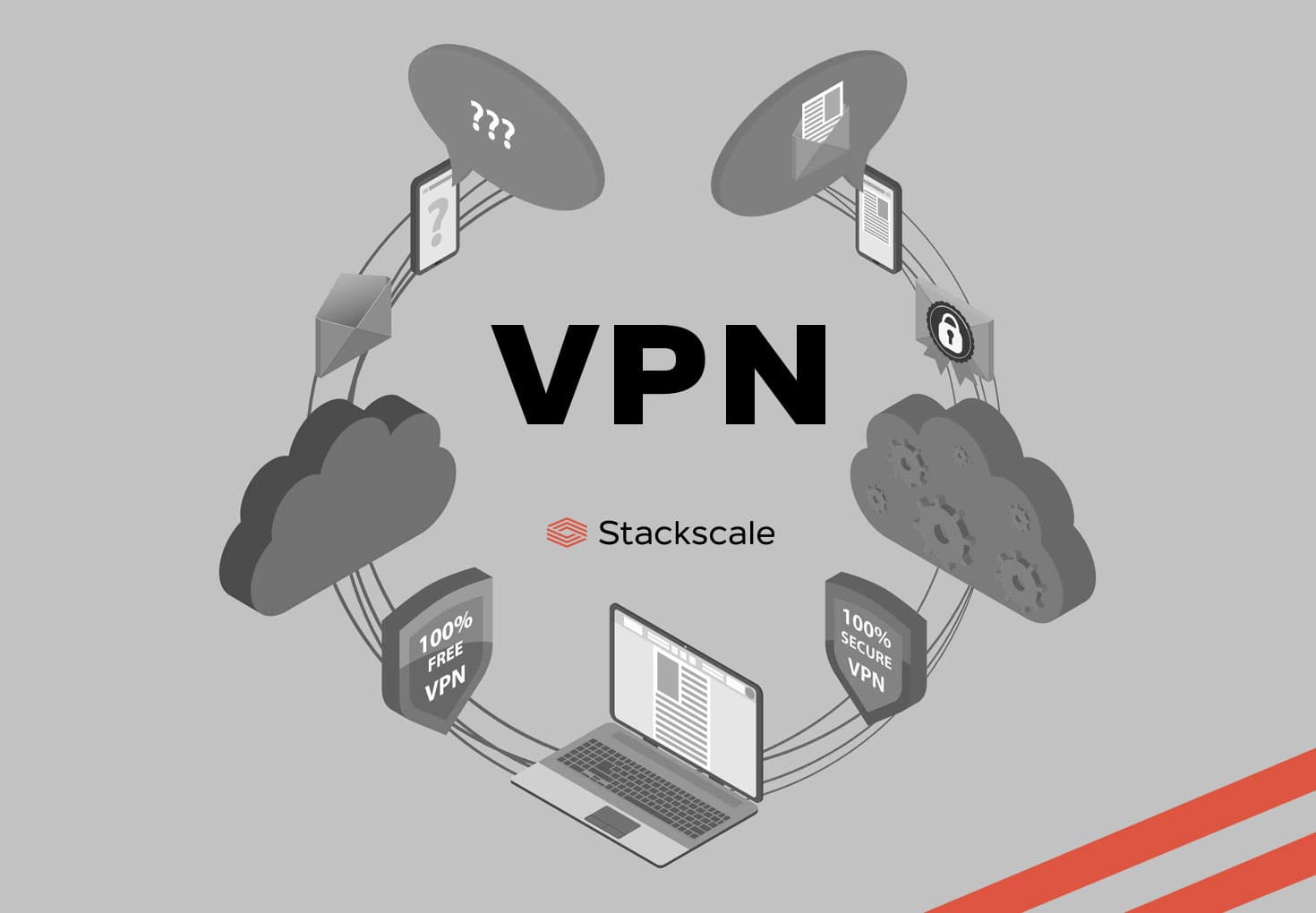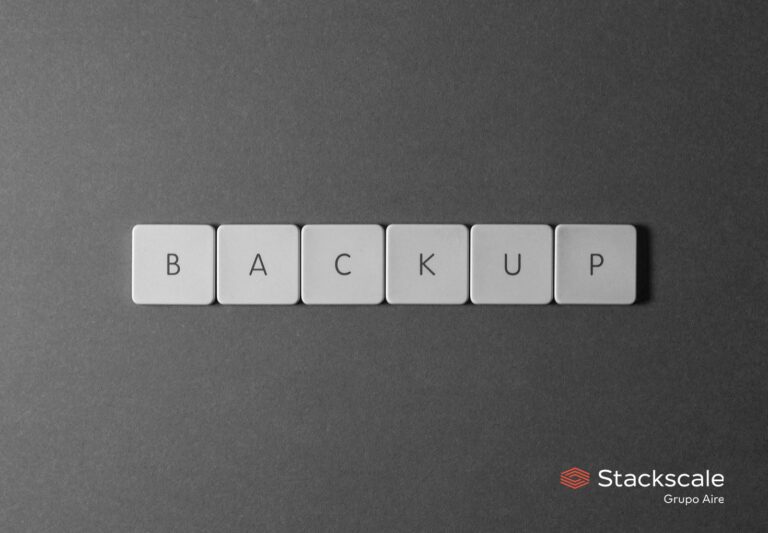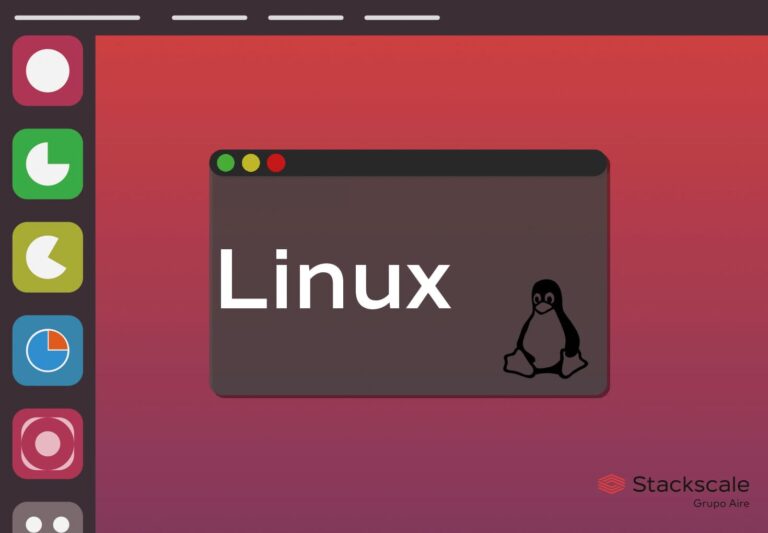A VPN or Virtual Private Network provides online security, privacy and anonymity. It is an excellent tool for protecting daily digital activities, both business and personal. From something as simple as sending an email to connecting to the dashboard of your company’s cloud environment without it being accessible over the Internet. In this article, we will cover what a Virtual Private Network is, its functioning, its uses and some solutions we recommend and use.
What is a VPN and how does it work?
A VPN is a Virtual Private Network that allows the creation of a secure and encrypted connection to another network over the Internet. VPNs make online actions virtually untraceable by masking IP addresses; keeping the user’s private information and browsing habits away from unwanted eyes.
When a device is connected to a Virtual Private Network, such device acts as if it was in the same network; enabling, for instance, remote access to local network resources. Besides, virtual private networks use encryption to make the data sent over a network unreadable. This way, all traffic — or a specific part of the traffic — is sent encrypted and securely through the VPN communication tunnel. It is to say, a Virtual Private Network connects your computer or any other device to another computer — which acts as a server — located anywhere on the Internet, so that you can browse the Internet using its Internet connection.
Why we do recommend using Virtual Private Networks
At Stackscale we recommend using VPNs for protecting the access to critical tools, such as the dashboard of your Private Cloud, VMware vSphere or OpenStack. It can even be used for protecting SSH accesses to servers, in addition to using public keys. This way you do not only guarantee that the traffic travels safely and away from prying eyes, but also that you have access to restricted resources nobody else will be able to access since they are in a private network; to which you can only connect to via your VPN.
A Virtual Private Network, which additionally has Internet access once you are connected to it, can also be useful when you connect to a public Wi-Fi. This way, your communications will be secure because you will be browsing through your own network thanks to the VPN. This is also useful for employees travelling frequently, such as sales people, so that they can both browse the Internet and access the company’s internal servers securely.
Common uses for a VPN
Data security and privacy is becoming increasingly important for users and businesses alike. So, virtual private networks are used often with diverse purposes:
- Access to restricted-access resources in a company. Data security is critical for ensuring business continuity, competitiveness and data protection regulatory compliance. Therefore, companies should always keep their resources private and secured, especially mission-critical ones. At Stackscale we use VPNs both internally and for protecting our customers; as security is one of our top priorities.
- Access to a business network while away from the office. Many companies use it so that professionals can have secure and encrypted access to the company’s resources while travelling or working remotely.
- Access to a home network while away from home. There are more and more users that use a Virtual Private Network for accessing their devices and computers that are turned on at home and browsing as if they were on a LAN at home.
- Hide browsing data. Users can keep their browsing history always private by using a VPN; something especially important when using a public Wi-Fi. On public Wi-Fi networks without a password or whose password is shared with everyone else, everything the user visits and that does not have a HTTPS secure connection could be visible to anyone who knows how to sniff a network. On the contrary, by activating a Virtual Private Network, all communications will be encrypted and completely anonymous. So, if anyone is sniffing the network, they will only see that the user has a VPN.
- Bypass censorship on the Internet. There are some governments that restrict the access to particular services or websites, such as China, and a VPN is a useful option to easily access those censored services and contents.
To sum up, VPNs improve data privacy and protect users against many cyberthreats, such as: malicious users spying on public networks or websites without a HTTPS secure connection, identity thefts and targeted ads based on browsing history.
Which VPN to choose?
In many of the Private Cloud deployments at Stackscale we deliver a management VPN by default and, when we do not do so, we recommend the customer to do it as a security measure. We use and support both L2TP (Layer 2 Tunneling Protocol), IPsec (Internet Protocol Security) and OpenVPN.
Secure VPNs with L2TP/IPsec/OpenVPN
L2TP and IPsec are supported natively both by Windows and Mac OS. Linux also supports it, but it must be installed and configured in order to work. As for OpenVPN, it is a widespread open source Virtual Private Network solution which offers numerous security possibilities. Depending on the operating system, there are different OpenVPN clients you can use.
Apart from the VPN recommendations above, there are many open source alternatives; such as WireGuard, which is a modern and easy to use a VPN solution that aims to improve performance. At Stackscale, in order to guarantee the maximum security, we recommend to use Virtual Private Networks and that every user with permissions has its own access to it.
Our technical support team can help you improve the security and privacy of your company’s infrastructure and virtual environments.





